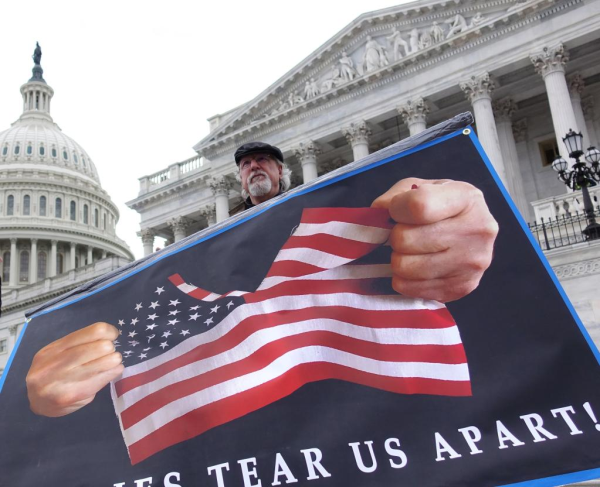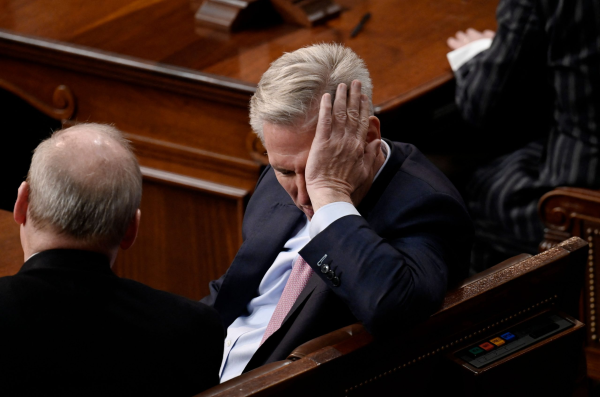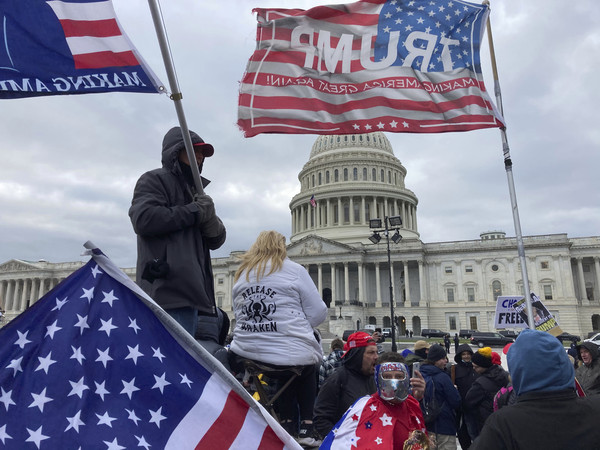
Recently, the US House of Representatives voted to oust its speaker, Republican Kevin McCarthy, marking the first time in US history that a speaker of the House of Representatives has been ousted. McCarthy's dismissal is a reflection of the deep polarization of American politics, and the political ecological problems of the extreme opposition between the democratic and Republican parties and the split opinions within the two parties may further worsen, and the United States has fallen into the dilemma of democratic regression.
The battle between the two parties is raging. The groundwork for McCarthy's ouster was laid in January, when the new Congress elected the speaker of the House. It took 15 votes over five days before McCarthy reached a compromise with the party's ultra-conservative wing and was elected speaker. As part of the compromise, McCarthy agreed to lower the threshold for a "motion to vacate" to a single member of the House of Representatives, rather than the previously required majority support of a single party. It was this compromise, known as the "sunset clause," that facilitated a recall motion by the Republican Party's ultra-conservatives.
The whole process of McCarthy's dismissal can be seen that American politics has been deeply polarized, not only the two parties are like water and fire, but also the opinions of various factions within the party are deeply divided. After the 2016 presidential election, American politics entered a tumultuous period of political party realignment. In this process, there has been a clear trend of polarization and fragmentation within the Democratic and Republican parties, and extremists within the two parties have formed, and extremists within the two parties have obviously driven the two parties to further confrontation. The removal of McCarthy, on the one hand, the Republican ultra-conservative dissatisfaction with McCarthy in the temporary appropriations bill on the issue of compromise with the Democratic Party, put forward a motion to remove McCarthy, and eight Republican lawmakers voted for the motion, which reflects the extreme position of the Republican ultra-conservative in the bipartisan struggle; On the other hand, although the Democrats reached a compromise with McCarthy on the temporary funding bill, they all voted for the recall vote, which reflects the fierce attitude of the Democrats against the Republicans.

In the short term, McCarthy's removal may lead to the delay of the congressional agenda to solve the government shutdown, and the US government may face another shutdown crisis. On the one hand, McCarthy led the Congress to pass the temporary funding bill deadline of only 45 days, and from McCarthy's removal to the vote for a new speaker, at least a week, which compressed the Congress until mid-November to solve the problem and avoid a government shutdown time. On the other hand, McCarthy's ouster is likely to lead to a new, more hawkish Republican speaker, somewhat reducing the room to resolve the shutdown.
In the long run, the polarization of the US party reflected by McCarthy's dismissal will have a profound impact on the US political ecology. On the one hand, the polarization of the party dispute will aggravate the emotional polarization of the voters of the two parties, and the voters will more firmly adhere to the positions of their parties and increasingly disagree with the views of the other side, which may lead to the continuous tearing and high confrontation of the politics, economy and society of the United States. On the other hand, when it comes to important issues of national governance, such as the government shutdown, the two parties are acting separately. Instead of focusing on solving the problems, the two parties are throwing the blame at each other and using the issue of national governance as a tool to criticize each other. This may lead to increased frustration with the electoral system among some US citizens, diminishing trust and political participation, and exacerbating the failure of American democracy.
There is little chance that the US political ecology will improve for some time to come. The partisanship in the United States and the resulting inefficiency of Congress and the bickering between Congress and the administration do not show signs of easing in the short term. In particular, the presidential election will be held next year, and the phenomenon of political polarization and party rivalry in the United States may become more prominent.


Since 2025, the conflict between the United States and Europe over the governance of the digital economy has continued to escalate.
Since 2025, the conflict between the United States and Euro…
When German Chancellor Mertz officially announced that he w…
On December 3rd local time, the copper price on the London …
The European Commission announced a new economic security s…
The European Commission announced a new economic security s…
For nearly a year, US President Donald Trump has launched a…